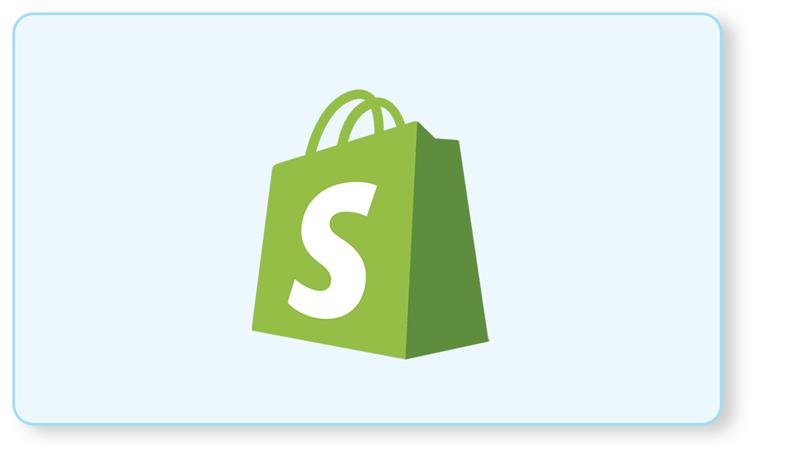How to Build a Social Commerce Mobile App – The Future of Commerce
The line between social media platforms and e-commerce sites has been blurring in recent years. The merging of these two digital realms has given birth to “social commerce,” an amalgamation that allows consumers to purchase directly through social media apps.
With the increasing integration of shopping features on social platforms, businesses have a golden opportunity to tap into this trend. If you’re wondering what social commerce is, how to develop your social commerce mobile app, and the general idea revolving around it, you’re in the right place!
Understanding Social Commerce
Social commerce integrates social media and e-commerce, where users can discover, share, and purchase products directly from their social media platforms. Social commerce mobile apps enable users to access social commerce features on their smartphones or tablets.
Social commerce provides the ability to shop and complete purchases without leaving a social media platform. Prime examples include Facebook Shop, Instagram’s ‘Shop Now’ feature, and Pinterest’s ‘Buyable Pins.’
Reasons to Opt for Social Commerce
Social commerce is not just a trend but a reality transforming how people shop online. It offers several advantages for both consumers and businesses, such as:
- Convenience: Social commerce allows users to shop anytime, anywhere, and from any device without leaving their favorite social media apps. Users can easily browse products based on their interests, preferences, and social interactions and make purchases with just a few clicks or taps.
- Personalization: Social commerce enables users to get personalized recommendations and offers based on their profile, behavior, and feedback. Users can also customize their products according to their tastes and needs and get instant support and assistance from the sellers or other users.
- Engagement: Social commerce fosters user engagement and loyalty by creating a sense of community and belonging among the buyers and sellers. Users can interact with each other, share their opinions and experiences, ask questions and get answers, and participate in contests and rewards programs.
- Trust: Social commerce builds trust and credibility among users by leveraging the power of social proof and word-of-mouth. Users can see the ratings, reviews, testimonials, and user-generated content of other users who have bought or used the products and make informed decisions based on their feedback.
- Growth: Social commerce drives growth and profitability for businesses by increasing their brand awareness, customer retention, and sales conversions. Businesses can reach new and existing customers through social media platforms, showcase their products attractively and interactively, and offer incentives and discounts to encourage purchases.
These are some reasons social commerce is a smart choice for online shopping. Now, let us guide you through the steps and best practices of how to build a social commerce mobile app that can attract and retain users.
Steps to Build a Social Commerce Mobile App
Market Research and Planning
Start by understanding your market needs, target audience, and competitors. You need to identify your potential customers, their needs and pain points, and how your app can solve them. Determine what makes your app unique and different from your competitors and how you can communicate that to your audience.
Some questions that you can ask yourself are:
- What is the main problem or goal that your app aims to address?
- Who are your ideal customers? What are their demographics, behaviors, preferences, and motivations?
- What unique value and benefits can your app bring?
Designing the UI/UX
The user interface (UI) and user experience (UX) are significant in an app’s success. Your UI and UX design should be based on the needs and expectations of your target audience and value proposition. It would help if you created an attractive, consistent, and intuitive UI and a simple, smooth, and satisfying UX.
Backend Development
This phase is the backbone of your app, focusing on server interactions, databases, and user account management. It involves choosing a robust tech stack to ensure seamless performance, data security, and scalability. The backend processes user requests, manages data storage, and ensures smooth transactions, forming the foundation upon which the front end operates.
Frontend Development
This is where the designed UI comes to life. It involves developing the app interfaces for both iOS and Android, ensuring compatibility and responsive design.
Implementing Essential Features
The development of your app’s features and functionalities should be based on the requirements and specifications of your target audience and value proposition. It would help if you aimed to create a functional, reliable, secure, and scalable app.
Some of the critical features of social commerce apps are:
- User Profiles: This allows users to create personal profiles to manage their purchase history, wish lists, and reviews.
- Social Feed: Display a vibrant feed where users can post product reviews, share purchases, and interact with other users.
- In-app Messaging: Enable direct conversations between users and sellers for queries, negotiations, and feedback.
- Search and Filters: Facilitate easy product discovery through advanced search options and filter mechanisms.
- Shopping Cart & Checkout: Ensure a smooth shopping experience with a user-friendly cart and secure payment process.
- Ratings & Reviews: A feature to rate products and sellers and a review system will enhance trustworthiness.
- Push Notifications: To keep them engaged, notify users about new product arrivals, deals, and updates.
Thorough Testing
Before releasing the social commerce app to the public, it’s crucial to rigorously test its functionality, user-friendliness, and security. This involves checking every feature for proper operation, ensuring intuitive navigation, validating secure data handling, and assessing its performance under varying user loads. Addressing any detected issues during this phase will ensure a smoother user experience post-launch.
Deployment & Launch
Once testing is completed and all issues are addressed, release your app on platforms like the Google Play Store and Apple App Store. Ensure to follow platform-specific guidelines for a smooth launch. Begin with a soft launch to gauge initial responses, then promote extensively to attract a wider audience and drive installations.
Marketing
Marketing your app to grow your user base is a crucial step. This is the most challenging and ongoing step involving promoting, optimizing, and analyzing your app. You can use strategies like search engine optimization (SEO), app store optimization, social media marketing, etc. You can also use an email marketing strategy to communicate with your existing and potential users via email. For example, you can use newsletters, promotions, surveys, etc., to engage your app’s email subscribers. Make sure that your brand grows with time.
Cookie Step: Monetization Strategies
Explore various avenues to monetize your social commerce app that can provide steady revenue streams while ensuring a valuable experience for your users.
Some of the most effective strategies are:
- In-app Purchases: Offer premium features that users can buy.
- Affiliate Marketing: Collaborate with other brands or businesses and earn a commission for promoting their products.
- Advertisements: Display ads within your app to generate revenue.
- Premium Membership: Offer a subscription model for exclusive deals and features.
Ready to Transform Your Business with a Social Commerce App?
Discover How We Can Assist You Every Step of the Way in Building Your Perfect App!
Conclusion
Creating a social commerce mobile app is a promising venture in the current digital climate. It marries the convenience of online shopping with the interactive nature of social media, providing a unique shopping experience for users.
With a clear understanding of the market, the right features, and a robust development approach, your social commerce app can stand out and achieve success in the competitive e-commerce landscape.
Which are your favorite social commerce apps? We would love to hear from you! iCreative Technologies is here to help you grow your online business.





